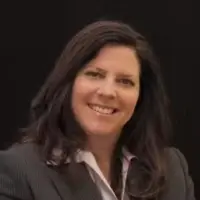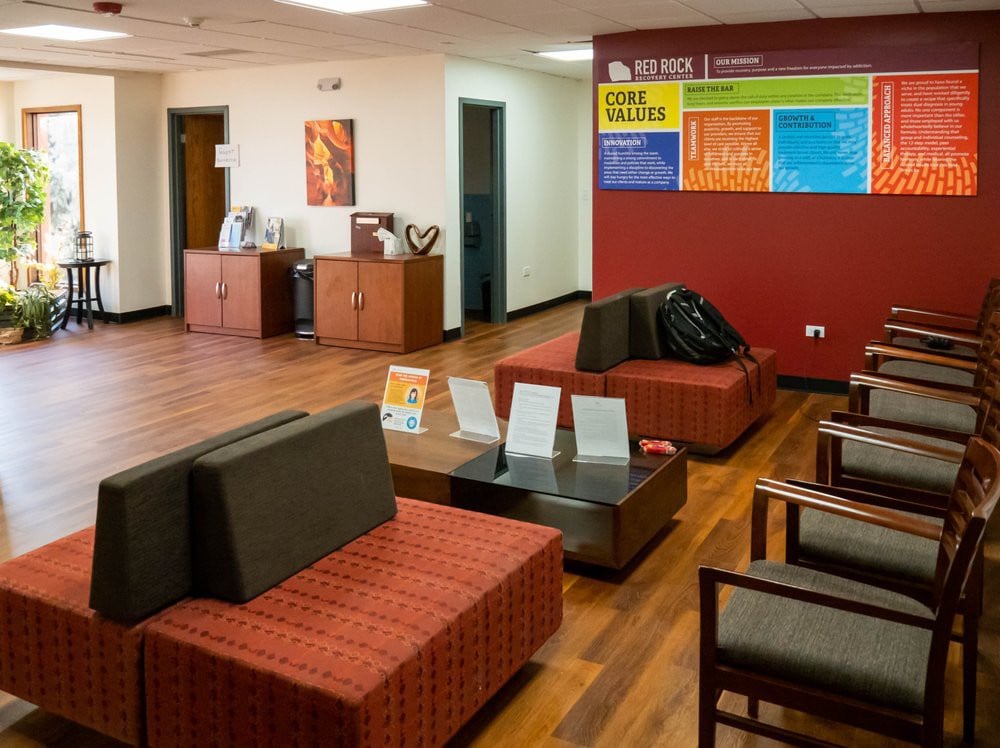About ARTS – Synergy
Denver is the capital city of Colorado and home to ARTS Synergy, a part time substance use disorder treatment facility for adolescents aged 12 to 21. Their counseling and group therapy are delivered in a format suitable for the age they’re working with. I noticed that the center offers both English and Spanish services to make recovery more accessible.
Synergy aims to improve the quality of life of each young person they treat. This includes helping them resolve co-occurring psychiatric conditions or behavioral difficulties.
Family Healing Brings Freedom for Teens in the Mile High City
Focusing on family healing can resolve many of an adolescent’s behavioral difficulties. Their Alternatives for Families program works with families with regular conflict, including the use of physical force or abuse.
The goal is to create a safe space for the child and help the adults to find healthy ways of coping with the challenges of their lives. Ultimately, seeing family relationships healed is the first prize. Family therapy can reduce the risks of an adolescent continuing on a destructive life path.
Behavioral Health Recovery at the Base of the Rocky Mountains
Synergy’s ENCOMPASS is for those with a dual diagnosis of mental health and substance use disorders. They meet with a counselor individually for therapy. Using motivational incentives, therapists can help them to make progress toward their goals. They’ll also be able to take part in pro-social activities such as taking part in organized sports, joining community clubs, mentoring or volunteering.
Rehab Score
Other Forms of Payment
Private insurance refers to any kind of healthcare coverage that isn't from the state or federal government. This includes individual and family plans offered by an employer or purchased from the Insurance Marketplace. Every plan will have different requirements and out of pocket costs so be sure to get the full details before you start treatment.
Self-pay involves paying for treatment out of your own pocket. You can use savings or credit, get a personal loan, or receive help from family and friends to fund your treatment. If you don't have insurance or your insurance plan doesn't cover a specific program, self-pay can help ensure you still get the care you need.
Financial aid can take many forms. Centers may have grants or scholarships available to clients who meet eligibility requirements. Programs that receive SAMHSA grants may have financial aid available for those who need treatment as well. Grants and scholarships can help you pai for treatment without having to repay.
Sliding scale payments are based on a client's income and family size. The goal is to make treatment affordable to everyone. By taking these factors into account, addiction recovery care providers help ensure that your treatment does not become a financial burden to you or your family, eliminating one barrier to care.
Military members, veterans, and eligible dependents have access to specific insurance programs that help them get the care they need. TRICARE and VA insurance can help you access low cost or no cost addiction and mental health treatment. Programs that accept military insurance often have targeted treatment focused on the unique challenges military members, veterans, and their families face.
Medicaid is a state based program that helps lower-income individuals and families pay for healthcare. Medicaid covers addiction treatment so those enrolled can use their coverage to pay for rehab. When a program accepts Medicaid the client often pays very little or nothing out of their own pocket.
Addiction Treatments
Levels of Care
Drug and alcohol addiction often takes a heavy toll on one's body. Over time, a physical dependence can develop, meaning the body physiologically needs the substance to function. Detox is the process of removing drugs and/or alcohol from the body, a process that can be lethal if mismanaged. Medical detox is done by licensed medical professionals who monitor vital signs and keep you safe, healthy, and as comfortable as possible as you go through detox and withdrawal.
The Synergy Residential Child Care Facility (RCCF) is a 15-bed residential facility offering a nurturing, but non-permissive and highly structured program for adolescent males aged 14 to 18. The program is a Modified Therapeutic Community (MTC), an evidence-based intervention in which treatment is phased, with individuals receiving increasing levels of responsibility and associated privileges, based on their progress through respective phases.
Outpatient programs are for those seeking mental rehab or drug rehab, but who also stay at home every night. Adolescent Community Reinforcement Approach (ACRA), an outpatient treatment approach, is a behaviorally based intervention that is effective in helping adolescents find alternative coping strategies and supports in their community to avoid drug use. ACRA helps promote abstinence, positive social activities, and positive family and peer relationships.
12-step programs are addiction recovery models based on Alcoholics Anonymous (AA). A number of substance abuse programs (including some drug and alcohol rehab centers) use the 12 steps as a basis for treatment. Beginning steps involve admitting powerlessness over the addiction and creating a spiritual basis for recovery. Middle steps including making direct amends to those who've been hurt by the addiction, and the final step is to assist others in addiction recovery in the same way. 12-Step offshoots including Narcotics Anonymous (NA), Cocaine Anonymous (CA), Dual Recovery Anonymous (DRA), Sex and Love Addicts Anonymous (SLAA) and Gamblers Anonymous (GA).
Assertive Continuing Care (ACC) is an empirically supported community and home-based model and it is available for those youth who have completed a residential, day treatment, or a similarly intensive program. ACC utilizes the ACRA therapy model and relies heavily on home-based case management to assist the youth in achieving goals and developing positive activities. This involves linking the youth to services in the community.
Treatments
The goal of treatment for alcoholism is abstinence. Those with poor social support, poor motivation, or psychiatric disorders tend to relapse within a few years of treatment. For these people, success is measured by longer periods of abstinence, reduced use of alcohol, better health, and improved social functioning. Recovery and Maintenance are usually based on 12 step programs and AA meetings.
Professional services are often necessary to recover from addiction. Drug rehab in Colorado provides the expert services needed to address the complex issues of addiction and help individuals start their recovery journey.
Many of those suffering from addiction also suffer from mental or emotional illnesses like schizophrenia, bipolar disorder, depression, or anxiety disorders. Rehab and other substance abuse facilities treating those with a dual diagnosis or co-occurring disorder administer psychiatric treatment to address the person's mental health issue in addition to drug and alcohol rehabilitation.
A combined mental health and substance abuse rehab has the staff and resources available to handle individuals with both mental health and substance abuse issues. It can be challenging to determine where a specific symptom stems from (a mental health issue or an issue related to substance abuse), so mental health and substance abuse professionals are helpful in detangling symptoms and keeping treatment on track.
Opioid rehabs specialize in supporting those recovering from opioid addiction. They treat those suffering from addiction to illegal opioids like heroin, as well as prescription drugs like oxycodone. These centers typically combine both physical as well as mental and emotional support to help stop addiction. Physical support often includes medical detox and subsequent medical support (including medication), and mental support includes in-depth therapy to address the underlying causes of addiction.
Programs
Young adulthood can be an exciting, yet difficult, time of transition. Individuals in their late teens to mid-20s face unique stressors related to school, jobs, families, and social circles, which can lead to a rise in substance use. Rehab centers with dedicated young adult programs will include activities and amenities that cater to this age group, with an emphasis on specialized counseling, peer socialization, and ongoing aftercare.
Clinical Services
Alternatives for Families – A Cognitive Behavioral Approach (AF-CBT) is an evidence-based treatment designed to improve the relationships between children and caregivers in families involved in arguments, frequent conflict, physical force/discipline, or child physical abuse. The goals are focused on enhancing child/family safety; to help families better adapt to and cope with difficult life circumstances; and to improve parent-child relationships.
Creativity is inherently healing, and can help those in recovery express thoughts or feelings they might not otherwise be able to. Creative arts therapy can include music, poetry/writing, painting, sculpting, dance, theater, sandplay, and more. Unlike traditional art, the final product matters far less than the experience of creation and expression itself.
Dialectical Behavior Therapy (DBT) is a modified form of Cognitive Behavioral Therapy (CBT), a treatment designed to help people understand and ultimately affect the relationship between their thoughts, feelings, and behaviors. DBT is often used for individuals who struggle with self-harm behaviors, such as self-mutilation (cutting) and suicidal thoughts, urges, or attempts. It has been proven clinically effective for those who struggle with out-of-control emotions and mental health illnesses like Borderline Personality Disorder.
Synergy’s youth are encouraged to explore positive prosocial and recreational activities to participate in while on therapeutic home passes in their communities. This helps to prepare them for post-residential life and becomes a large part of their treatment goals. To augment this, Synergy works to secure funding for additional activities these youth would not normally be exposed to. Substance use has become a recreational outlet for Synergy youth and their program works to provide them adrenaline pumping activities such as snowboarding, camping, rock climbing, hiking, fishing, and mountain biking experiences to expose them to exciting, physical activities in a safe, staff supervised, and sober state.
Research clearly demonstrates that recovery is far more successful and sustainable when loved ones like family members participate in rehab and substance abuse treatment. Genetic factors may be at play when it comes to drug and alcohol addiction, as well as mental health issues. Family dynamics often play a critical role in addiction triggers, and if properly educated, family members can be a strong source of support when it comes to rehabilitation.
Group therapy is any therapeutic work that happens in a group (not one-on-one). There are a number of different group therapy modalities, including support groups, experiential therapy, psycho-education, and more. Group therapy involves treatment as well as processing interaction between group members.
In individual therapy, a patient meets one-on-one with a trained psychologist or counselor. Therapy is a pivotal part of effective substance abuse treatment, as it often covers root causes of addiction, including challenges faced by the patient in their social, family, and work/school life.
Life skills trainings involve all the skills a person must have in order to function successfully in the world. These include time management, career guidance, money management, and effective communication. Truly successful addiction recovery is based on the ability to not only live substance-free, but to thrive. Life skills teaches the practical necessities of functioning in society, which sets clients up for success in life, and therefore sobriety.
Trauma therapy addresses traumatic incidents from a client's past that are likely affecting their present-day experience. Trauma is often one of the primary triggers and potential causes of addiction, and can stem from child sexual abuse, domestic violence, having a parent with a mental illness, losing one or both parents at a young age, teenage or adult sexual assault, or any number of other factors. The purpose of trauma therapy is to allow a patient to process trauma and move through and past it, with the help of trained and compassionate mental health professionals.
Amenities
-
Residential Setting
-
Private Setting
Staff

Kristen Dixion, MA, LPC
Executive Director

Angi Wold, MS
Director of Operations

Zoran Vukadinovic, MD
ARTS Medical Director
Contact Information
3738 West Princeton Circle
Denver, CO 80236
